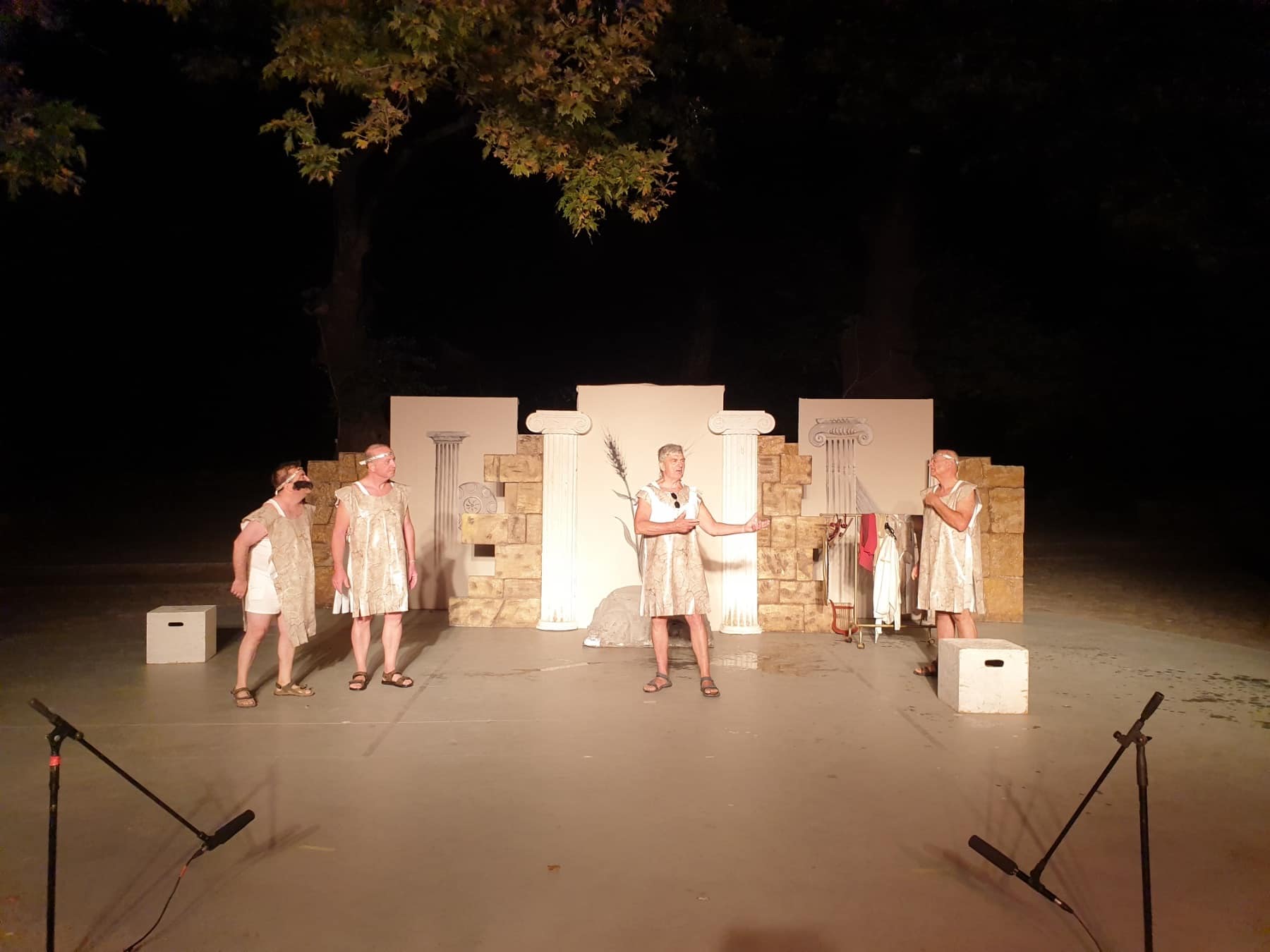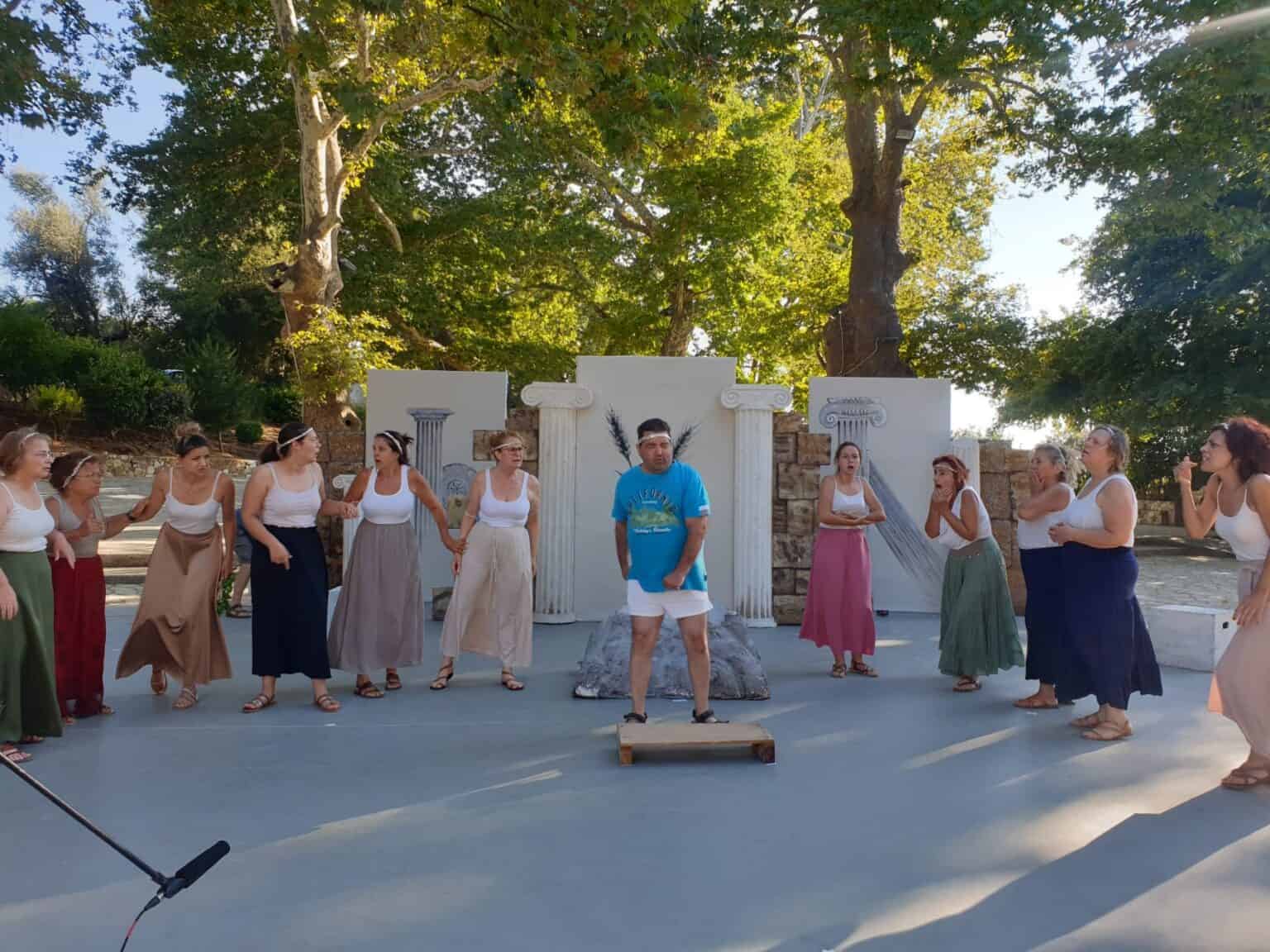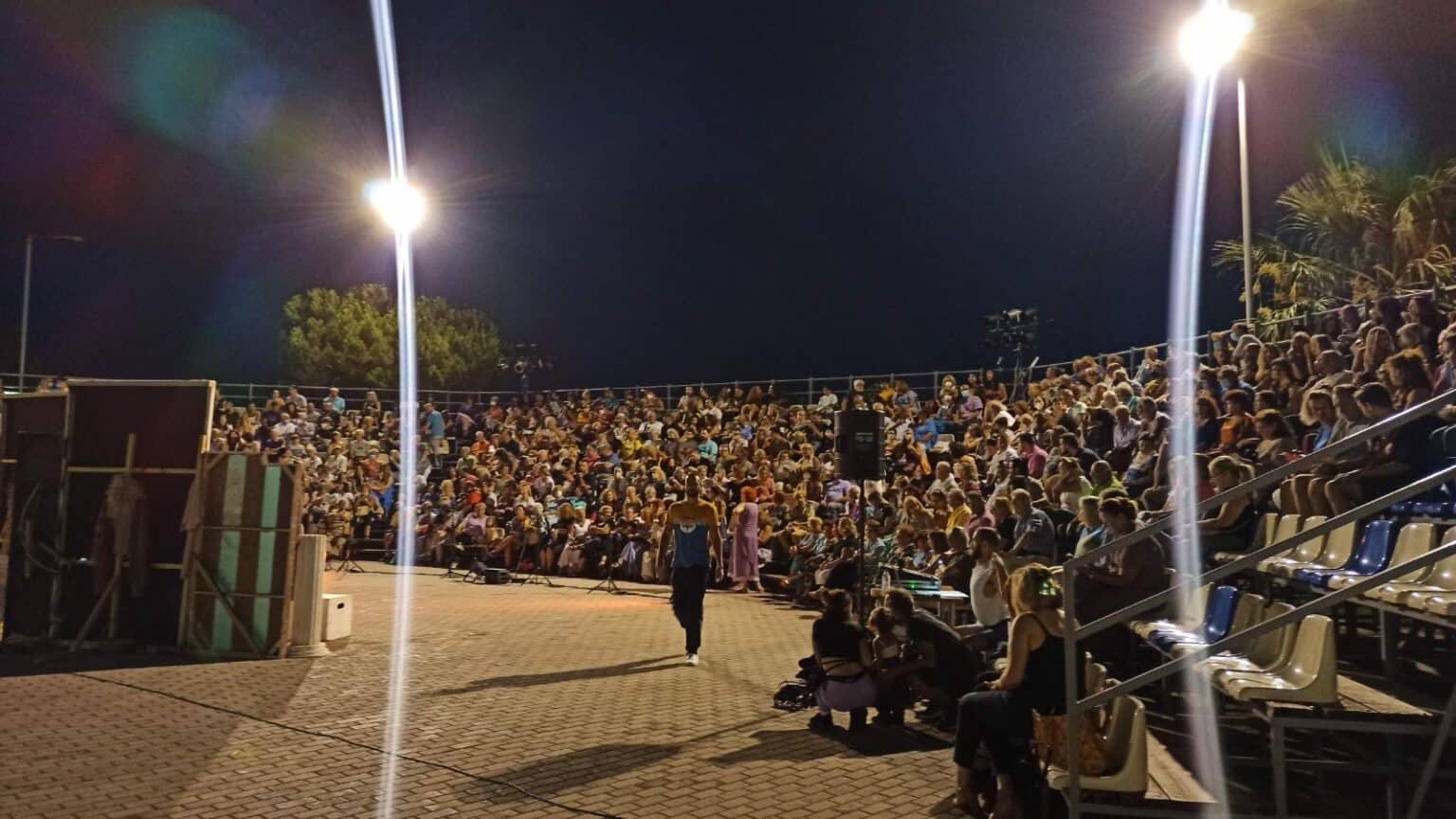Evangelism through the Performing Arts in Greece

Anastasia’s jaw dropped when she learned which role the director had assigned her. In the classical Greek play, her character was to speak crass and crude lines, filled with sexual innuendo. Suddenly, a hobby she loved had turned into a seemingly insurmountable obstacle.
A full-time pharmacist in Rafina just outside of Athens, Anastasia is connected to Greater Europe Mission because of her husband Fred Naff’s work with Design Group. Her hobby of amateur theater has always been a joy to her, as well as an opportunity to be a witness for Christ among unbelievers.
But on that particular day, she wasn’t sure what to do. In her two years with the theater group, Anastasia had never been called upon to take part in a play she found offensive.
As she prayed about it, she could sense the Lord asking her, “Anastasia, why are you in the theater group?”
She had no trouble answering: she was there because she loved her hobby and she enjoyed acting. Yet, she knew she was also there for another reason—to be a vibrant Christian in an often dark, secular setting. Among her fellow actors, she had already had a chance to speak to many individually about Jesus. Each time she did so, she felt blessed.
While praying about her involvement in this new play, Anastasia heard the Lord making it clear that she needed to participate.
“Wherever I happen to be enjoying a hobby or activity,” she says, I can sense God saying, Are you having fun? Are you happy here? Good…now it’s time to talk about me!”
This play, despite its content, was to be no exception.
As she had always done, she began to memorize her lines and attend rehearsals. One day before rehearsal started, a tall woman with short, dark hair called Anastasia over to where she stood with a friend. Katerina* had been telling the woman about Anastasia’s Christian beliefs. A psychologist, she found it fascinating that Anastasia based her faith solely on the Bible and not on the religious traditions of Greek Orthodoxy.
“Tell my friend here what you were telling me,” urged Katerina. “Tell us about the Bible and salvation.”
It had been a long day at work and Anastasia felt exhausted. As she approached the two women, she silently prayed, Lord, give me the words!
“Do you read the Bible?” she asked. Mutely, the two women shook their heads. “Well, whatever I say to you today is not from my head. It’s straight from the Bible.” Anastasia went on to explain the difference between a simple, biblical faith and certain Orthodox teachings. She quoted the first chapter of John: “In the beginning was the Word and the Word was with God and the Word was God.” She went on to share passages from the book of Mark and from Paul’s letter to the Corinthians.

“Where is that in the Bible?” the women would ask, interrupting her now and then as she spoke.
Suddenly, Anastasia became aware that the entire cast of the play had gathered around and was listening to her. She’d been talking for half an hour! Even the director, who had put off the start of rehearsal to let her finish speaking, stood there paying rapt attention.
Looking up at the faces surrounding her, Anastasia could tell that some people were annoyed and merely waiting for her to stop talking. Others were curious. The director gave the order to begin rehearsing and the crowd broke up.
“The amazing thing,” says Anastasia, “is that I had been praying for an opportunity to witness to the whole group at once. I’d shared the gospel with many of them individually, but I longed for something more. When I looked up and saw everyone listening, I knew God had answered that prayer.”
The next day, Anastasia gave two of her castmates a ride to rehearsal. Marina*, a petite woman with dyed red hair pulled back in a bun, and her husband Giorgos were in their seventies. During the half-hour drive to the theater, both peppered Anastasia with questions about what she had been speaking about the day before. Back home later that night, Anastasia sent Marina a text with verses from the first chapter of John’s gospel.
When Marina didn’t answer for a whole week, Anastasia decided she most likely wasn’t interested. But soon Marina texted back:
Sweet Anastasia, I would like to hear more about what we discussed and know more about this passage you sent. Could my husband and I get together with you and your husband to talk about these things?

During the play performance, Anastasia no longer felt uncomfortable playing her role, despite the fact that she didn’t care for the provocative lines she had to speak. God had put her there for a reason. The opportunity to share the gospel with her castmates was far more important than the play itself.
“I chose to perform in a play that I found offensive,” she says, “because I knew God had a higher purpose for my being there. But that kind of thing isn’t for everyone. I wouldn’t recommend it for a new believer, or someone young in faith. I’ve been a Christian for forty years. I am secure in my faith, and that’s why I could ignore the provocative words coming out of my mouth. I was able to separate those offensive lines from who I am in Christ and look beyond them to the opportunity God gave me to witness to people who might not otherwise hear the gospel.”
*Names have been changed to protect privacy
—
About the author: Jenny Garrity is a storyteller with Greater Europe Mission. Jenny and her husband Kim joined GEM in 1984. They have served in Germany, Belgium, and most recently, Greece in response to the refugee crisis.
